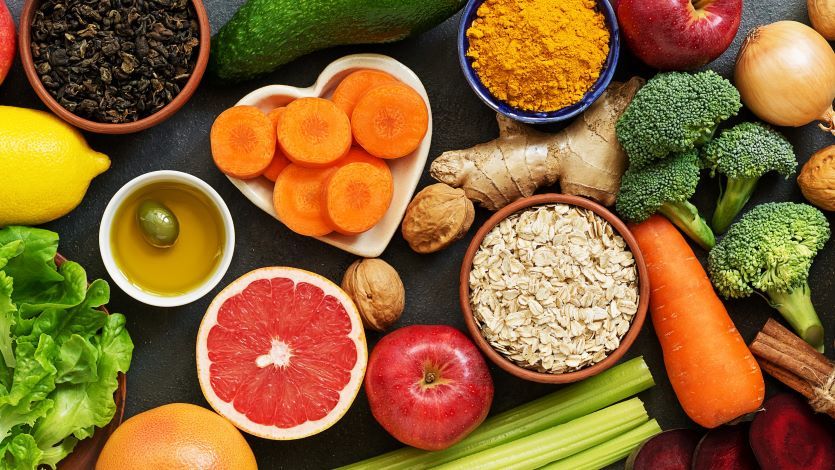Buzz Haven: Your Daily Dose of News and Information
Stay updated with the latest trends, news, and insights from around the world.
Dieting Dilemmas: Why Your Salad Isn't the Answer
Uncover the surprising truth about salads and dieting! Discover why your healthy choices might be sabotaging your weight loss efforts.
The Salad Myth: Why Greens Alone Won't Help You Lose Weight
The notion that a diet rich in greens will magically lead to weight loss is a common myth that deserves to be debunked. While leafy greens are undoubtedly packed with essential nutrients, simply increasing your intake of salads will not guarantee weight loss. The truth is that effective weight loss hinges on caloric balance—the relationship between calories consumed and calories burned. If you're consuming more calories overall than you're using, no amount of greens will tip the scale in your favor. Instead of viewing salads as a standalone solution, it’s essential to incorporate a variety of healthy foods into your diet while being mindful of portion sizes.
Moreover, many salads can be deceptively high in calories due to added ingredients such as dressings, croutons, and cheeses. A seemingly healthy bowl of greens can quickly become a caloric bomb when topped with heavy dressings or high-calorie toppings. To make the most out of your salads, focus on incorporating lean proteins, healthy fats, and high-fiber carbohydrates while staying mindful of the additions that can sabotage your efforts. In essence, understanding the complete picture of your dietary choices—rather than fixating solely on greens—will empower you to achieve your weight loss goals more effectively.

Balancing Nutrients: The Hidden Pitfalls of a Salad-Only Diet
A salad-only diet may seem like a healthy option, but it can lead to significant nutrient deficiencies. While greens and vegetables are packed with vitamins and minerals, balancing nutrients requires a wide range of food groups. For instance, salads often lack essential proteins and healthy fats, which are crucial for maintaining muscle mass and overall health. Without these nutrients, individuals may experience fatigue, weakened immune responses, and even hair loss. This highlights a major pitfall of a salad-only diet: the misconception that greens alone can provide all necessary dietary needs.
Moreover, a strict salad diet can result in inadequate caloric intake, leading to unintended weight loss and metabolic issues. Many individuals may fill their plates with low-calorie vegetables while neglecting the importance of starchy foods, fruits, and proteins, which contribute to a well-rounded diet. To truly balance nutrients, it’s essential to include diverse food groups such as whole grains, legumes, and healthy fats like olive oil or avocados. By incorporating these elements, salads can become a part of a nutritious and balanced diet, rather than the sole focus of one’s eating habits.
Are You Sabotaging Your Diet with 'Healthy' Salads?
When trying to maintain a healthy diet, many individuals mistakenly assume that all salads are inherently healthy. However, the truth is that salads can be sabotaging your diet if you're not mindful of the ingredients you include. For instance, salads loaded with creamy dressings, excess cheese, or sugary toppings can quickly transform a nutritious meal into a calorie-laden indulgence. It's essential to be vigilant about what you add to your salad, as some of these common 'healthy' components can contribute to weight gain rather than weight loss.
To make your salad truly beneficial for your health, consider opting for lean proteins like grilled chicken or tofu, along with a variety of fresh vegetables. Additionally, using a vinaigrette made from olive oil and vinegar can provide flavor without piling on unnecessary calories. Remember, a healthy salad should be well-balanced, focusing on whole, nutrient-dense ingredients rather than hidden traps. By being conscious of what you mix into your bowl, you can enjoy delicious salads that support your dietary goals instead of sabotage them.